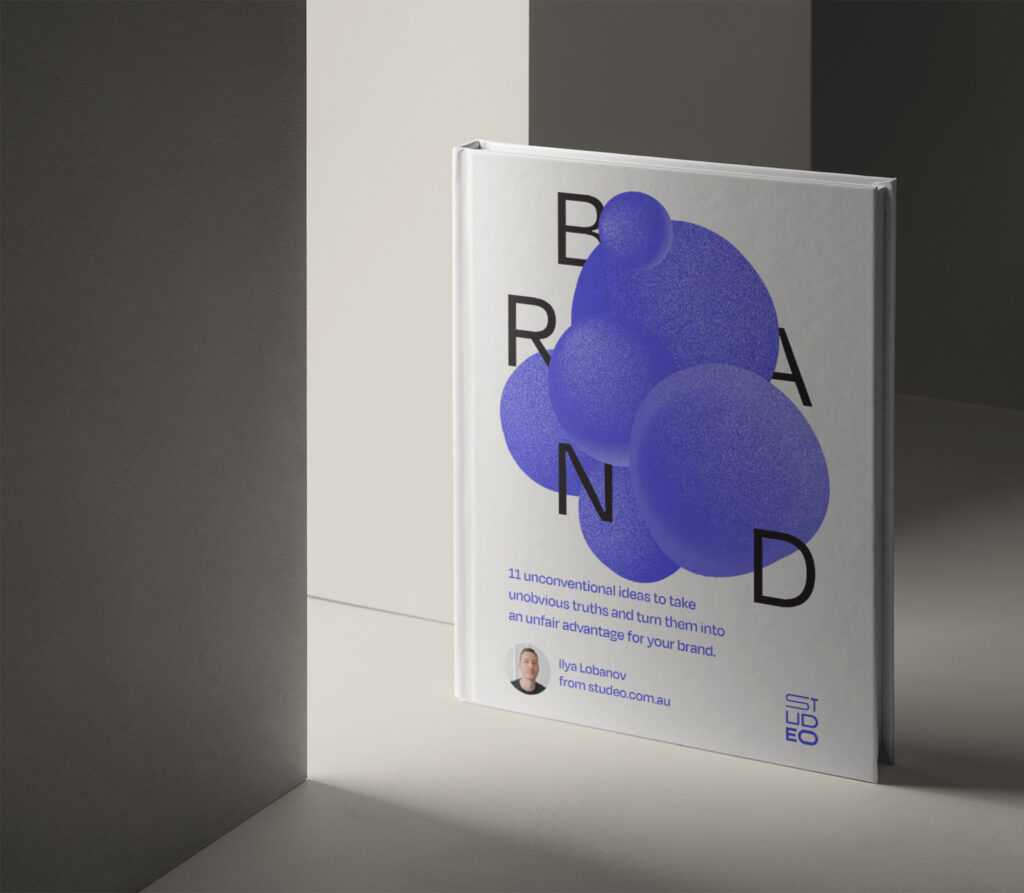Innovation: Are you a creator or a finisher of ideas?

How do you define innovation?
Most see innovation as generating ideas that can change the world. But few think of innovation as the practical implementation of ideas.
As a business, innovation is paramount if you want to thrive. But if you define innovation as simply having ideas, I’ve got bad news for you – ideas without execution are worthless.
If you imagine an idea as a pizza with 8 slices, I put the execution of an idea at roughly 6 slices. The 2 remaining slices would represent idea generation (I’m referencing the 80/20 rule of course).
So how do you know how to focus your energies and where?
If you want to build a business with the capacity to ideate great ideas and introduce new innovations into the market, here’s a helpful way to look at it.
Innovation is about thinking and doing
Overarchingly, innovation can be looked at like this.
With any creative endeavour, two things need to happen. The initial idea has to be born and it then needs to be implemented.
Without those two events, ideas won’t get done.
I once worked with a manager who was brilliant at generating ideas.
Every other day, she would bring new ideas to the table about how we could improve the business, introduce a new process or product, or birth great ideas for current client projects.
I, on the other hand, thrived on seeing ideas through or finding a way to implement ideas in general, so I’d like to think that we made a great team.
Let’s give our roles catchy labels, like ‘creator’ and ‘finisher’, which I’ll use throughout the article.
The bottom line is this: if you wish to have an innovative business – you need a creator and a finisher or – learn how to be both.
Skills that identify great creators
Were you triggered reading that comparatively speaking, idea generation is worth only 20 percent versus 80 for implementation?
You and I know that without the idea, there would be nothing to execute.
And yet, with my manager’s story, creators tend to forget or lose interest in their ideas – quickly moving on to thinking of new ideas to generate.
An excellent example of a creator ‘archetype’ would be Richard Branson.
He is very good at finding novel ideas. But will probably be the first to admit that he enjoys the chase of a new idea more than he does the process of implementing those ideas.
Hence why he looks to partner with others who excel at executing his ideas and then he moves on to the next.
Creators tend to talk about the big picture and a big vision. And they get frustrated when asked about the details of how something would work (after all – that’s not for them to be concerned about).
Skills that identify great finishers
When thinking about these two ‘archetypes’, I was always aware that I’m a much better finisher than a creator. Generating those initial ideas is often a struggle for me.
Finishers tend to be great at seeing something through to the end. They can analyse data and insights and deduce the most optimal plan of attack, or the most likely roadblock causing an issue.
They can do this because of their diversified knowledge and analytical mind – I often refer to this kind of varied knowledge as a ‘Deep Generalist’.
Creativity, in general, is about combining unrelated concepts, ideas, and knowledge into something fun, unique, and daring – the more diversified your knowledge is – the more room for generating creative ideas.
And although it’s certainly useful for a ‘creator’ to tap into that, in my experience being a Deep Generalist predisposes you to be a finisher.
How do you identify your ‘ideas’ type?
Over the next few statements pick the statement you identify with more.
A – I am more creative than most. Creativity should be left up to me.
B – Everyone is creative, and we can benefit from overlapping expertise.
A – I expect others to trust me and my ideas and not ‘interfere’.
B – I build my process around collaboration, involving everyone.
A – I lead with my core expertise, that’s why people come to me.
B – I lead with curiosity and learn new skills if they improve the outcome.
A – I go for the big reveal of ideas to wow everyone with my genius.
B – I share progress often and take stakeholders on a journey with me.
A – Creator, Specialist, Visionary
B – Finisher, Deep Generalist, Mechanic
Did you identify more with answers A or answers B?
You may disagree that some statements don’t correlate with my labels at the end.
And that’s fine. I’ve grouped them based on my experiences, interactions with other designers, and feedback on my content over the years. What is true for me, may not be true for you.
What I do know to be true is after having met, coached, and worked with hundreds of creatives I’m yet to meet someone who is a great creator and a great finisher at the same time.
But of course, just like with any personality-type quizzes any of us have ever done, you will find that none of us are 100% this or that. The truth is not black and white but greyscale.
And if you have recognised a finisher or creator in you, it doesn’t mean that you have to ‘wear your stripes’. Here are some practical ways to supplement those ‘weaknesses’.
Tips for supplementing your ‘weakness’
Ideas for creators
- As a creator struggling to keep track of your ideas, a useful practice is to document each idea in a big book of ideas. Even go as far as categorising them for easy reference, if you like.
- With your ideas book as a reference point, for every 10 ideas you’ve listed during a specific period, shortlist at least 1 of those and find a way to be involved in the execution of it.
- You can use something like the Eisenhower Matrix to prioritise the ideas that you want to focus on implementing – think of which ideas would bring the most impact to you and others.
- You can also prioritise ideas you want to action using the Stop, Start, Continue framework to help you work out how you can juggle those ideas best and how you can prioritise your schedule.
- I know that you’re probably also struggling with the Shiny Object Syndrome, and watching the video lesson titled ‘Exercise 7: Shiny Object Syndrome‘ from my latest class will be helpful to deal with that.
Ideas for finishers
- Creativity is just like going to the gym – the more you do it, the stronger you become. So make a habit of generating ideas. Create a challenge for yourself whereby you generate X amount of ideas per day à la James Altucher’s ideas practice or Michael Bierut’s 100-day Challenge.
- As a finisher, I’ve always struggled to come up with ideas until I have created a boundary around which to ideate within. Often, even random boundaries can help me to spark new ideas. I often break out the SCRIPT™ Get Ideas Deck – a type of random stimuli with prompt questions helping me see a challenge from different perspectives that create an artificial ‘boundary’ jump-starting the creative process.
- Partner up with someone who is a great ideas person, start hanging out with them, and become curious about how their mind works and how they generate ideas – you might just start to adopt some of their creative habits and become more of an ideas person yourself.
Final thoughts on innovation, ideas, and business
If we bring all of this back to the context of your business, you might find that you are excellent at generating ideas.
But you have so many loose ends that you get overwhelmed about which ideas to work on next, especially if you are a solopreneur or someone who works in a small team.
And the opposite may also be true. As a finisher, you may struggle to find novel ideas to inject into your business to have it thrive and succeed.
Self-awareness is the key to success. That is, knowing your flaws and your biggest strengths.
So if your team is comprised primarily of creators, you’ll find that you are spinning your wheels and not getting much progress happening in those areas.
And if your team is comprised primarily of finishers, there will probably not be much innovation.
You can hire others who will complement your strengths and offset your weaknesses externally or you can find other creative ways to partner with others.
As a parting thought, I’ll leave you with this great snippet I came across in James Clear’s newsletter recently.
‘The generalist becomes more powerful when they develop a specialty where they can apply their broad insight. The specialist becomes more powerful when they develop a broader surface area of knowledge to connect with their expertise. Which side are you favouring right now? Would you benefit from a broader area to apply your already honed skills? Or do you need deeper skills to unlock your general knowledge?’
Enjoyed this article?
Please share this article with just one person you think might enjoy it. And if you found this article insightful consider signing up for Studeo Insider emails and receive more insights like this, once a month.
